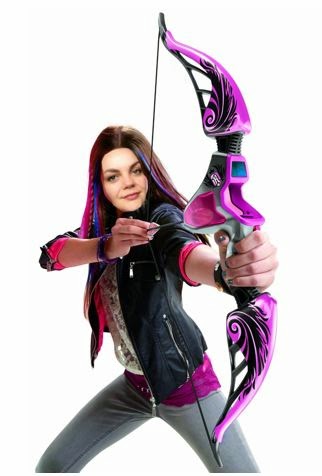Continuing with the Blogging from A to Z April Challenge 2015
V is for Vimes- Sam Vimes.
Ye gods, how do I even begin to try and summarise a character so complex and magnificent as Mister Vimes in only a few hundred words? Perhaps I should start with his own:
"If there was anything that depressed him more than his own cynicism, it was that quite often it still wasn't as cynical as real life."
Sam Vimes is Harrison Ford, Clint Eastwood and Jack Dee rolled into one messed-up (yet still redeemable) Night Watch guard with a short temper and a chip on his shoulder . And I love him for it.
Born in the Shades, from a "too poor to paint; too proud to whitewash" single-parent family, Vimes is now a highly reluctant member of the nobility, with an annoying habit (in his opinion) of collecting titles: currently, he is known as
His Grace, His Excellency, the Duke of Ankh, Commander Sir Samuel Vimes. The Patrician of Ankh-Morpork bestows titles on Sam just to annoy him or, possibly, because he thinks it's funny. Sam himself likes to add
Blackboard Monitor on the end.
His rise to power came slowly: after many years as captain of the practically-obsolete (thanks to the Thieves' Guild) Nightwatch, Vimes' firm grasp of the nastier side of human nature led to him spending a significant chunk of his adult life as a drunk. The arrival of a dragon, and Lady Sybil Ramkin (not to be confused), kick-started his arc and the creation of one of the best-loved characters on the Disc. The romance between Lady Sybil and himself, unfolding over the course of many books, is the most beautiful yet unsoppy thing I have ever read, and I wish there were a few more like Vimes in this world so I could find one and marry him ;)
But back to the story. Vimes, though loving married life, is not exactly comfortable with his new wealth and status, seeing himself as one of "us" rather than them, and he hates the idea that he might be lumped in with the upper classes, who sneer at those below:
“...the helmet had gold decoration, and the bespoke armorers had made a new gleaming breastplate with useless gold ornamentation on it. Sam Vimes felt like a class traitor every time he wore it. He hated being thought of as one of those people that wore stupid ornamental armor. It was gilt by association.”
Don't get him started on the tights.
One of the reasons Vimes is so fascinating to me is his philosophical outlook (except he probably wouldn't call it that, being far too no-nonsense and slightly suspicious of big words). Here's a good example:
 |
| Are you feeling lucky? |
“The reason that the rich were so rich, Vimes reasoned, was because they managed to spend less money.
Take boots, for example. He earned thirty-eight dollars a month plus allowances. A really good pair of leather boots cost fifty dollars. But an affordable
pair of boots, which were sort of OK for a season or two and then leaked like hell when the cardboard gave out, cost about ten dollars. Those were the kind of boots Vimes always bought, and wore until the soles were so thin that he could tell where he was in Ankh-Morpork on a foggy night by the feel of the cobbles.
But the thing was that good
boots lasted for years and years. A man who could afford fifty dollars had a pair of boots that'd still be keeping his feet dry in ten years' time, while the poor man who could only afford cheap boots would have spent a hundred dollars on boots in the same time and would still have wet feet
.
This was the Captain Samuel Vimes 'Boots' theory of socioeconomic unfairness.”
Whenever I read one of the Discworld novels with Vimes, I feel like I balance out a bit. I'm guilty of wanting everything and everyone to be lovely, and I know that makes me hopelessly naïve at times. Vimes is a wake-up call. He sees things as they really are, and sometimes worse than they are (from experience). One of Nature's policemen, nothing can be hidden from him and he knows that you'll slip up sometime. He's probably the reason policemen make me nervous: according to Vimes,
everyone is guilty of
something.
That's not to say he doesn't have a fun side... oh, how he loves to toy with the Assassins who are sent to kill him (though not anymore: they've decided he's more useful alive than dead- or perhaps they are just embarrassed that they've failed so many times). And when it comes to impersonating animals and well-known Ankh-Morpork residents for the amusement of his son, Young Sam, no one can match him.
 “WHERE'S MY COW?!
“WHERE'S MY COW?!
IS THAT MY COW?!
HRRRUUUUGGGH!!!!
THAT'S NOT MY COW!
THAT'S A HIPPOPOTAMOUS!”
I think his tough exterior, in true trope-style, is only to protect his soft core. His genuine affection for his fellow watchmen, his pride in his city, his unswerving love for his family and his determination to lock up as many bad guys as possible are the actions of a truly compassionate and altruistic man.
In terms of personality, Vimes bears some similarity to
Granny Weatherwax (another one of my favourites). They are both hugely intelligent, dryly witty, uncannily observant "good" characters who secretly fear the darkness inside them, and constantly strive to control the more poisonous side of their nature. Granny watches herself constantly for signs of cackling; Vimes for "the Beast".
Quis custodiet ipsos custodies? (Who watches the watchmen?)
Vimes does. Always.
"No excuses
. No excuses at all. Once you had a good excuse, you opened the door to bad excuses."
What are your thoughts on Vimes? Is he a moral compass or just a good copper? Feel free to share in the comments below.








































